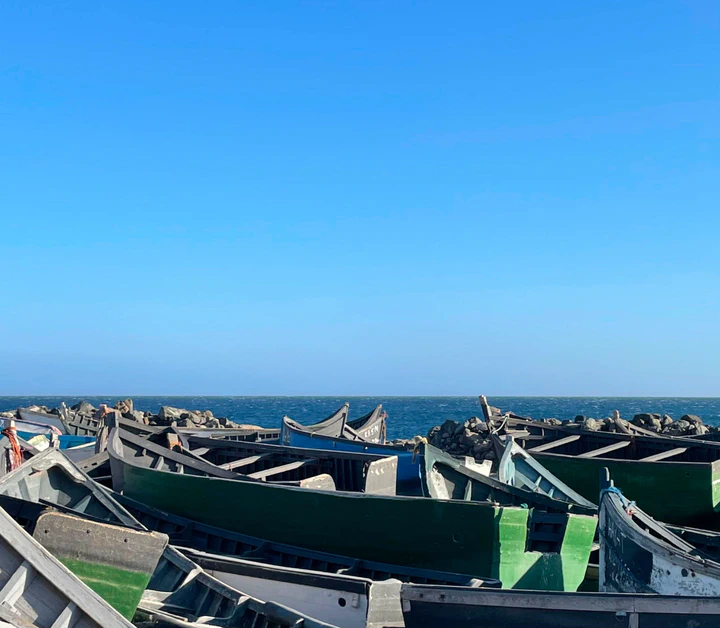Mediterranean Crossroads: doing sea ethnography

A group of researchers from the universities of Genoa and Parma will cross the central Mediterranean for two weeks, from September 26th to October 11th, stopping at the main intersections of migrant mobility and European border control: Pantelleria, Lampedusa, Linosa, Malta. For the first time, a vessel of social scientists will inhabit this space in first person, in the spirit of a public sociology that can confront and directly affect reality. A podcast will recount its journey, populated by meetings and reflections on the past, present and future of forms of mobility.
The dominant narratives in the Italian political and media field depict the Mediterranean as a space of separation between geographically and socially distant areas: a ’natural’ barrier that abysmally divides different realities. On the contrary, historically, the Mediterranean is first and foremost a space of encounter, crossing, contamination between different subjects. In this conjuncture, it is configured as the place of friction and conflict between the ’necropolitical’ impulses of the European Union’s migration and border management and the irreducible drive of migrants’ mobility. The Mediterranean has become a deadly border, a direct consequence of European migration policies through the militarisation of maritime and land borders, the criminalisation not only of people on the move but also of those who support their transit, and the substantial absence of legal access policies to European territory.
At the same time, the space and the relations generated within the Mediterranean produce a complex social fabric, where rationalities, representations and practices escape dichotomies and the social ‘boundaries’ between subjects become blurred. Thus, within the perimeter described by the European migration policy, its border apparatus and networks and infrastructures of control and mobility, a multiplicity of actors move, animated by different interests and perspectives: migrants in transit, fishermen, sailors, coastguards, law enforcement officers and European agencies, humanitarians, solidarity workers. Not only visions of closure, but also voices and practices of openness, which do not find space in the media debate and which instead maintain the fluidity of the water border, making the field of experiences and visions on this sea between lands complex – on what has been, on what is to be.
As researchers, we propose to enter into relation with this changing field, inhabiting the same maritime space. Through a privileged observation point because on the move, a boat, we will try to give an account of the complexity of this space, in a two-week voyage with stops in Pantelleria, Lampedusa, Linosa and Malta, where from the sea we will listen to the sounds of the Mediterranean and try to understand how it acts as an actor among others, and where we will meet groups of researchers on land, listening to the testimonies of those who live and cross the sea. An ethnography of the sea and in the sea studded with encounters in this complex social context, in order to recompose memories of the sea and analyses of its present, and to make more visible the polyphony of voices and the plurality of visions on its future.
Following the vocation of ‘public sociology’ - a way of understanding the practice of social research in connection with public space, as a regeneration of public space that derives from the production and collective curation of ‘scientific data’ -, we will give voice to these encounters and our inhabiting the field by narrating them in daily episodes of a podcast, in a constant dialogue between the different temporalities and spatialities of the sea, using its sounds, dialogues with witnesses and autoethnographic diaries. In short, we will compose political arguments and visual, sonorous and poetic explorations on the Mediterranean, so that starting from the frictions and refractions generated between the different positions, and from the hybridisation of languages, we can imagine a post-national dimension that is able to go beyond the government of mobility imposed by states. Finally, we will network with radio experiences and workshops coordinated by university students, because the public sociology we are talking about starts first and foremost from a vision of the collective university that animates our projects.
This first ethnographic journey is part of the research project MOBS (Mobilities, solidarieties and imaginaries across the borders / Prin 2020) led by the University of Genoa and the research group linked to the Laboratory of Visual Sociology and involving the Universities of Milan Statale, Naples, Padua and Parma, which examines the porosity of the Italian national territory, investigating forms of mobility and dwelling of migrants in transit and the transformations of the border government in four privileged places: the mountains, the Mediterranean, the urban space and the rural space.
First Mission 2022:
26 September: Marsala/Pantelleria – 27 / 29 September: Pantelleria/close to the Tunisian territorial waters - 30 September / 7 October: Lampedusa / Linosa / close to the Libyan territorial waters - 8 / 11 October: Malta, final workshop in collaboration with the University of Malta and with the participation of: Naor H. Ben-Yehoyada (Columbia University, US) and Chiara Denaro (Alarm Phone and University of Trento), Neil Falzon (Aditus Foundation) Daniela DeBono, Gilbert Calleja (University of Malta).
Research Crew:
University of Genoa: Jacopo Anderlini, Arianna Colombo, Enrico Fravega, Luca Giliberti, Francesca Goletti, Antonino Milotta, Luca Queirolo Palmas, Gabriella Petti, Federico Rahola. University of Parma: Guglielmo Agolino, Daniela Leonardi, Vincenza Pellegrino, Veronica Valenti.